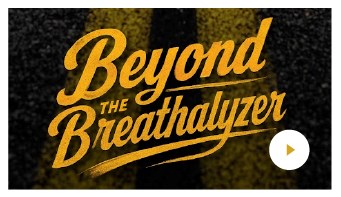8 Things That Can Go Wrong When the Police Draw Your Blood
Posted on June 27, 2025
Can You Be Charged with DUI When You Were Not Actually Driving?
Posted on December 13, 2024
Proposed New Bill in Congress Threatens Deportation for DUI Offenses
Posted on November 12, 2024
True or False: DUI Edition
Posted on August 09, 2024
What about my Miranda Rights?
Posted on July 23, 2024
Is My DUI a Felony?
Posted on July 08, 2024
Throwback Thursday, DUI Style
Posted on January 11, 2024
Jail Time Reduction Without an Ignition Interlock
Posted on December 23, 2022
Change is Coming!
Posted on July 12, 2022
DUI Checkpoint Ahead: What You Should Know
Posted on November 12, 2021
Drinking on the Job: How a DUI Can Impact a Commercial Driver
Posted on June 10, 2021
The Future of Marijuana DUI Is Up In Smoke: A New Frontier In Arizona’s Age of Legal Recreational Marijuana
Posted on November 09, 2020
Can Police Enter Your Home In Pursuit Of A Misdemeanor Crime? The Supreme Court Will Decide
Posted on November 05, 2020
Is There a Time Limit For The Police To Draw My Blood As Evidence?
Posted on May 07, 2020
My License Was Suspended For 1 Year. Can I Still Drive?
Posted on May 04, 2020
Can I Refuse to Submit to Field Sobriety and Chemical Tests?
Posted on May 01, 2020
CAN I GET A DUI IF I WAS NOT DRIVING?
Posted on April 30, 2020
Can I Get a DUI if I Am Under the Age of 21?
Posted on April 28, 2020
When Are Breath Test Results Admissible in Court Against Me?
Posted on April 24, 2020
Understanding Your Right to an Independent Blood Test When Facing a DUI Charge
Posted on April 22, 2020
I Was Arrested for a DUI... What Happens to My Car?
Posted on April 20, 2020
Understanding Arizona's Ignition Interlock Devices
Posted on April 16, 2020
Preliminary Breath Tests 101
Posted on April 14, 2020
Top Ten Questions About Tucson Arizona Marijuana DUI Laws
Posted on March 27, 2020
Throwback Thursday, DUI Style
Posted on March 26, 2020
Out-of-State Prior Convictions and Arizona DUIs
Posted on December 20, 2019
BREATH ALCOHOL TESTS ARE UNRELIABLE STUDY SHOWS
Posted on November 07, 2019
ARIZONA DUI ALCOHOL DEFENSES – UNCERTAINTY OF MEASUREMENT IN BREATH TESTING
Posted on August 22, 2019
ARIZONA DUI ALCOHOL DEFENSES – IMPROPER BLOOD TUBES
Posted on August 08, 2019
ARIZONA DUI BREATH ALCOHOL TESTING – PROBLEMS AND CHALLENGES
Posted on July 31, 2019
Where Are the Arizona DUI Checkpoints Near Me Tonight?
Posted on July 03, 2019
What are the penalties for a first Arizona DUI involving alcohol levels from 0.20 and above?
Posted on March 11, 2019
What are the penalties for a first Arizona DUI involving alcohol levels from 0.15 to 0.19?
Posted on March 07, 2019
Behan Ramsell Attorneys File Brief With the U.S. Supreme Court
Posted on March 07, 2019
What are the penalties for a first Arizona DUI involving alcohol limits from 0.08 to 0.149?
Posted on March 05, 2019





